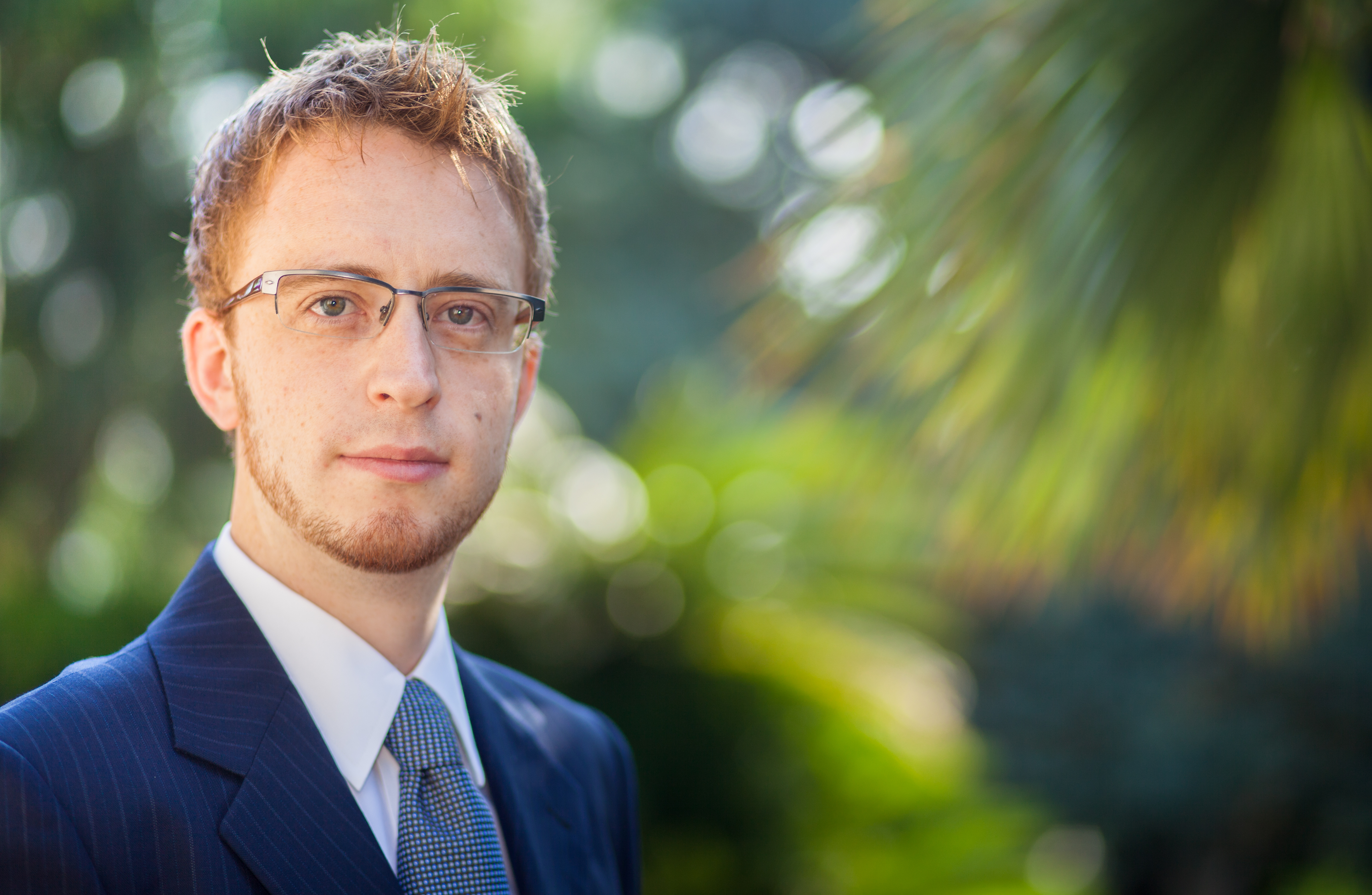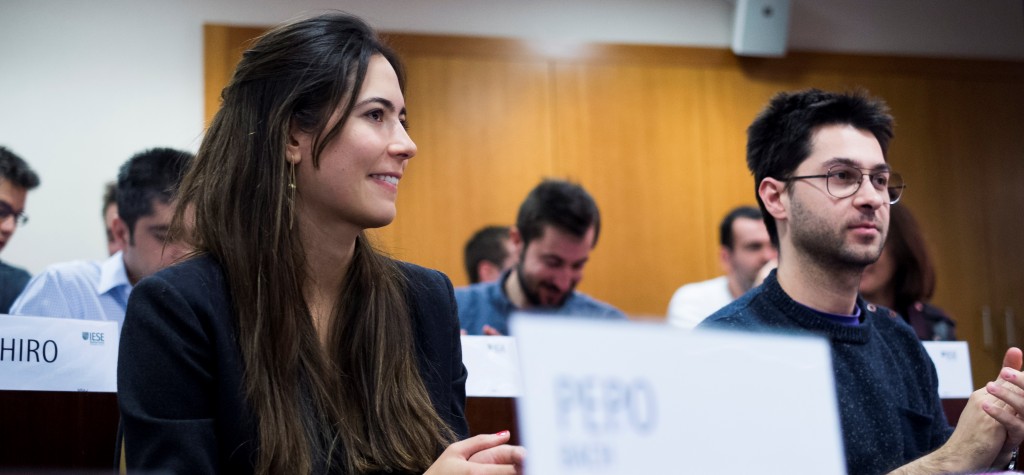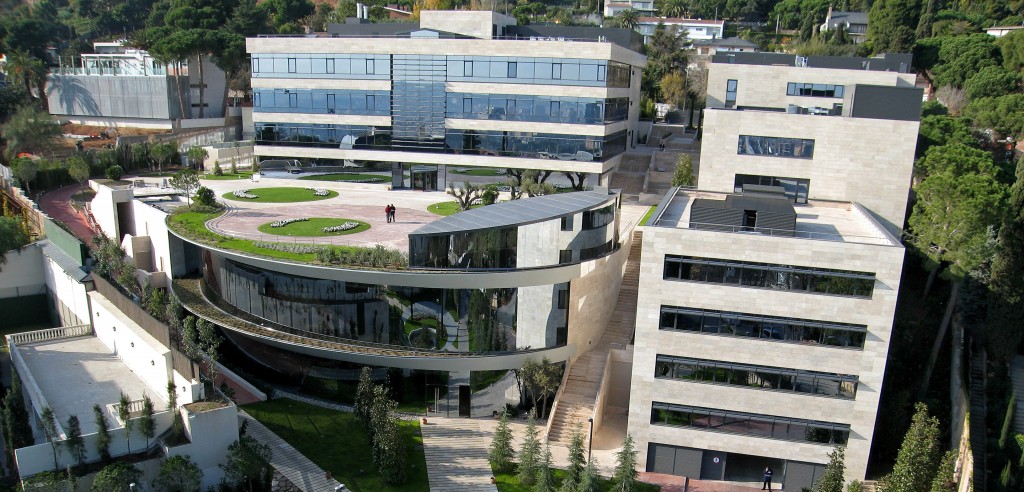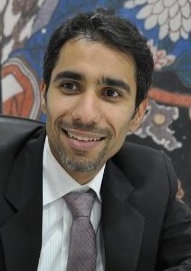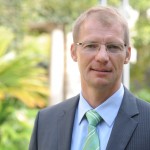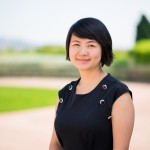Massimo Maoret is an assistant professor in IESE Business School’s Strategic Management Department. He received his PhD in management from Boston College in 2013.
Question: Please tell us about the journey that brought you here to IESE, teaching MBAs.
Answer: I see life and careers more from a sociological perspective, meaning that I think that specific and somewhat “random” episodes or people can greatly influence our paths. In my case, there were two or three key people who showed me potential paths, or at least made me more self-aware about who I was and what I was good at. For instance, during high school I was set on being an engineering career, but during my national exams an external examiner, who didn’t really know me all that well, asked me, “Why do you want to become an engineer? You’re so creative.” This was that sort of an “a-ha” moment, when I realized something about myself simply because a random stranger pointed it out.
I ended up studying computer science because computers were my passion ever since I was a kid. I got my Commodore 64 when I was five; I programmed in BASIC, played video games and what not. I didn’t, however, want to turn a passion into my career, so I got into a program called “Management and Computer Science” and eventually realized that problems involving people are more interesting than those involving computers. People are less predictable, so the challenge is greater! I love challenges since they fuel my competitive spirit, so this seemed the right place to put my brain to work.
I got into management and found a couple of good mentors at Berkeley and in Bologna who allowed me to try out scientific research, and I found out that I was good at it. This led me to Boston for my PhD, where my passion for computers spilled into my research because I continued to study networks, although this time networks of people! I focus on the social structure of relations among people and/or among companies and how it affects their performance, trajectories, attitudes and outcomes. I loved my time at Boston College and MIT, where I met some truly inspiring scholars.
Two years ago I had the opportunity to come to IESE. I found a positive environment, with great faculty and a fantastic community. And here I am!
Q: You forgot to say great students.
A: That goes without saying! But let me elaborate on that. I have always enjoyed teaching, but I originally went into this profession with the primary goal of conducting cutting-edge scientific research. IESE, however, has given me a new appreciation for teaching. Mentoring, making an impact on someone’s life, and developing relationships with students and executives are particularly fulfilling. In some sense, I am developing this part of my vocation as I move along here at IESE, and I have to give credit to this institution for that.
It is often different in other schools: sometimes teaching is considered merely as a revenue stream, and professors often minimize their involvement with teaching to focus research instead. It’s very different here at IESE, because we try to reach excellence in both teaching and research. It’s hard to become a full professor here!
Mentoring, making an impact on someone’s life, and developing relationships with students and executives are particularly fulfilling
Q: In your opinion, what are the main challenges that MBAs will face over the next three years?
A: Most MBA students come in with a great functional background, but as you move up in your career toward more senior management positions, you don’t get paid a lot to be an expert in marketing, finance or accounting. General managers need to be able to think well and get things done. Success in business is one-third luck, one-third good strategic thinking, and one-third “getting things done”, which in my view is the most important.
For me, “getting things done” has a social psychology component. It’s imperative to understand other peoples’ points of view, but it’s also about politics! Ultimately, power and politics matter hugely in organizations, so having a sense of the political landscape around you, knowing who’s powerful and who’s not, and how to maximize your social capital are key elements that you must learn in order to be successful.
Managers typically think a lot about planning and not enough about utilizing these political dimensions to get their plans implemented. We easily get excited about new wonderful ideas, but often get stuck in the harsh reality comprised by people who (legitimately) have different incentives and interests. Moving people and instilling a sense of urgency in them is tricky, and is usually a major challenge for fresh-minted MBAs.
Q: Where would your dream retirement location be?
A: California! I love Carmel-by-the-Sea, so I could see myself retiring there. It is close to Stanford and Berkeley, which is a plus. I also love Santa Monica.
Q: Favorite food?
A: That’s an easy one: Italian! I also love sushi, but unfortunately there aren’t any great sushi places here in Barcelona.
Q: Which restaurant in Barcelona do you frequent the most?
A: I love Rasoterra, an Italian vegetarian place in the Gothic neighborhood. I am not a vegetarian, but these guys are amazing! (Maybe I shouldn’t have recommended it, now it will be packed with students! So don’t go there. But it is a great place.)
Q: If you weren’t teaching, what would you be doing instead?
A: I am quite eclectic, so I like a lot of very different things. Perhaps an architect or a jazz piano player. Somebody told me that I would have been a good movie director. I was also close to working for Google in 2004. Finance also attracts my competitive side…but I still would have most likely become an academic. Probably a historian, since I love to read history.
Q: Any particular era?
A: Twentieth century mostly. The Italian front in World War I was in my province. I also love to read about naval warfare in the Mediterranean in World War II.
Q: What are your hobbies?
A: I have many passions but I am not sure if they truly are “hobbies” these days. As an assistant professor, I don’t have time for hobbies, although I do love movies.
Q: What’s your favorite movie?
A: “Smoke” by Wayne Wang and Paul Auster. It’s a little jewel. It’s a simple but profound movie about life and humanity. Get ready to cry. And for “Breaking Bad” fans out there: it also features a young Giancarlo Esposito! During the filming, the chemistry among the crewmembers and the actors was so good that many ad-libs were edited into a companion movie called “Blue in the Face,” which is about Brooklyn.
I am also a huge fan of the Coen brothers. I love “The Big Lebowski” because it also plays with the hard-boiled genre. However, for me, the movie that represents cinema at its best is “Apocalypse Now.” I give that movie a 10.
Other hobbies…Well, I love sports. I follow sports, I do research on sports, I watch sports, especially basketball (go Lakers!). I know everything there is to know about sports. I love sport history.
Q: Do you follow Nate Silver?
A: Yes, of course, he’s one of my nerd heroes! I also like watching TV series. Right now I am watching “The Wire” for the second time.
Q: Wow!
A: Yes! It’s the best series ever. By far. If you haven’t watched it, do yourself a favor and just do it.
Success in business is one-third luck, one-third good strategic thinking, and one-third “getting things done”
Q: What is your favorite book?
A: I have a few. The first book that I ever read (my students will laugh now) was Treasure Island and then Moby Dick, so perhaps my passion for pirates comes from there. I am also a big fan of mystery novels, especially ones that use elements of the genre to really talk about humanity and who we are.
For instance, I love The Long Goodbye by Raymond Chandler. It’s a hard-boiled novel. There is also a fantastic movie rendition by Robert Altman, but ultimately it’s really a story about what friendship is about. It’s one of those stories where the mystery is solved and there are still 50 pages left before the end…
Q: Spoiler alert!
A: …and it makes you wonder: why is the book still going on? At the end, you realize that it’s not story about an assassination, but really about the friendship between two men. In the same vein, I love Friedrich Dürrenmatt. Some of his mystery novels really deal with the theme of what justice is. To me, he is a fundamental read. I definitely recommend his books.
And finally, especially for people living in Barcelona, Manuel Vázquez Montalbán is a must! He wrote a lot of mystery novels set in Barcelona between the 70s and the 90s, which are a great window on the evolution of the city of Barcelona. His novels are witty, funny and smart. I particularly recommend Los pájaros de Bangkok (The Birds of Bangkok).
Q: Have you read any of Haruki Murakami’s novels? I recommend them.
A: No, but my mom is a fan. He’s big in Italy! I only read a small essay where he talks about his favorite jazz albums. I really liked it. Unfortunately, I don’t think it’s available in English.
Q: Can you tell us more about your area of research and social networks?
A: Sure! First of all, by “social networks” I don’t mean online websites like Facebook or LinkedIn. Sociologists define “social networks” as simply the structure of relationships among a group of people. We have been studying the effects of these social structures since the 1930s. What is surprising about these structures is that they have a huge impact on our behavior, creativity, attitudes, beliefs and performance. What is interesting—and perhaps a bit scary—is that most of us do not have much control on the structures that surround us, so we tend to be “victims” of the situations we put ourselves in, so to speak.
There is a lot of research that suggests that things like being happy, gaining weight, becoming pregnant, smoking—all of these behaviors that we think are in our control—are rather hugely determined by the structure of the networks around us. This is why it is always good to take a step back and try to reflect on the structure and the relationships around you, so that you have an accurate picture of the social landscape around you.
Q: Can you recall any funny situations that took place during one of your classes?
A: I love to teach the “Cirque du Soleil” video-case. It is one of the last cases in my class. Students tend to be tired at the end of the semester, so I try to bring a bit of the “Cirque” magic and fun into the classroom. Students also tend to go a little wild with their comments, so there are usually a lot of opportunities for a good laugh.
Q: Any closing comments?
A: Thank you for the interview! I’m a blabber so good luck editing it! But let me close with something important. We are in a truly special place, here at IESE. It is a really unique environment that creates a lot of value. It’s a truly transformational place, full of positive energy and positive people. The opportunities for learning are endless, inside and outside the classroom. I am happy and proud to be part of this unique pursuit of excellence.
I think most of the students perceive this, but I am also sure that they will come to appreciate it even more as they move forward their lives. So take advantage and good luck to everybody!
I would like to thank Prof. Maoret for his time and apologize for not being able to include everything that was said during the interview! He’s our group mentor and I enjoyed, as always, conversing with him about everything. My “books to read” list just got a whole lot longer.
Until the next issue…


